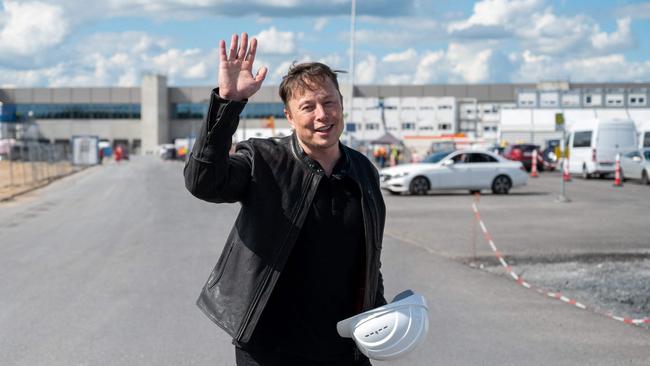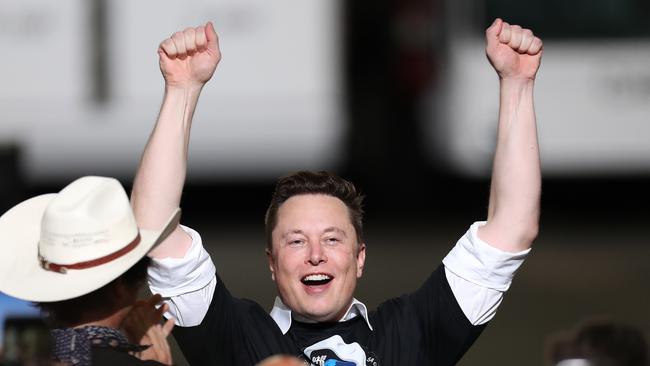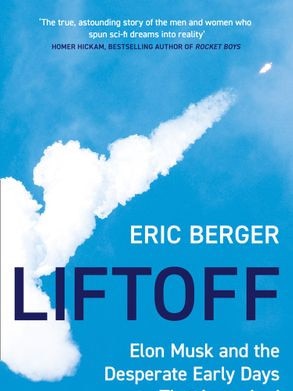The rocket science of how Elon Musk dodged bankruptcy for space
Elon Musk came so close to disaster that just one more corroded screw, one more $5 capacitor failure, would have meant that SpaceX would never have got off the ground.

Anyone with even the faintest interest in technology has heard of Elon Musk. He’s the Tesla electric car guy, the bloke who made a fortune in Silicon Valley with the PayPal business, and these days has cornered the market in commercial satellite launches.
He became something of a hero in US space circles when he stole the gig of sending astronauts to the International Space Station from the Russians, who had the only rockets that could get there once the space shuttle program was finally put out of its misery in 2011.
Liftoff: Elon Musk and the Desperate Early Days That Launched SpaceX is an unexpectedly gripping tale of the early years at his wildly ambitious rocket engineering start-up company SpaceX.
It’s a success now, but came very close to bankruptcy.
Musk is, it is generally agreed, one weird guy. Born in South Africa in 1971, he moved to Canada, and having gained admission to Stanford University to study physics, dropped out after two days and started a string of internet companies that eventually became PayPal, which made him a wealthy man at 31, when the company was sold to eBay.
But his obsession (and there is no other word for it) was Mars, and it still is. He is determined, as he has declared many times, to “die on Mars, and not on impact”. He wants to create our “Planet B” on the red planet, and to settle thousands of people there.
To him, SpaceX was, and still is, the first step along this heroic journey. But in Liftoff, Berger describes how close he came to falling flat on his face.

Berger doesn’t waste time with Tesla or any of the other often harebrained but occasionally inspired Musk ventures. He focuses on the engineers and technicians, their 18-hour days and sheer determination to make the Falcon 1 rocket fly.
This is a great story well told, and Berger does a fine job of explaining the mechanics and physics of rocket science (and yes, it really is rocket science), while not losing the reader in tech talk, but rather giving us just enough nuts and bolts nous to earn a ticket on a white-knuckle rollercoaster ride. A ride that came so close to disaster that just one more corroded screw, one more $5 capacitor failure, would mean that SpaceX would literally have never gotten off the ground.
Musk is best thought of as part Thomas Edison, part P.T. Barnum in his approach to cooking up and selling wild ideas. He can come across as crazy, and maybe he is, but he can be an inspirational leader.
“It’s crazy to think how I rationalised leaving a corporate job at Boeing for a start-up with a guy I’d never met,” is a typical recollection of the first employees. But none of them regretted signing on – geeks don’t often get the chance to build a whole spacecraft from scratch. At SpaceX there was a shared determination, not only to succeed, but to prove a point. To show Washington that it could all be done faster and much cheaper than NASA was saying.
Musk’s obsession was contagious, and he wanted not only to get to orbit, but to do it with re-usable rockets.

As Musk himself put it, “If an airline discarded a 747 jet after every transcontinental flight, passengers would have to pay $1 million for a ticket”.
SpaceX would eventually make that model obsolete, and indeed astonish engineers everywhere by managing to not only salvage used rockets, but have them land on their tails unscathed, just like in the ’50s science fiction movies.
But all that was in the future. Falcon 1’s first “launch” incinerated itself on the pad. The second got off the ground and detonated all over a coral reef in the Marshall Islands. The third almost got there, until the first stage smashed into the second instead of separating.
And that was it. Musk was on the brink of bankruptcy. They tried again, and the launch was flawless.
SpaceX has come a long way since the Falcon 1. Whether they’ll ever get to Mars, well, Musk has proved sceptics wrong too many times to say it can’t be done.
Pat Sheil is a Sydney author and journalist.
Liftoff: Elon Musk and the
Desperate Early Days That Launch SpaceX
Harper Collins, Nonfiction
280 pp, $32.99



To join the conversation, please log in. Don't have an account? Register
Join the conversation, you are commenting as Logout